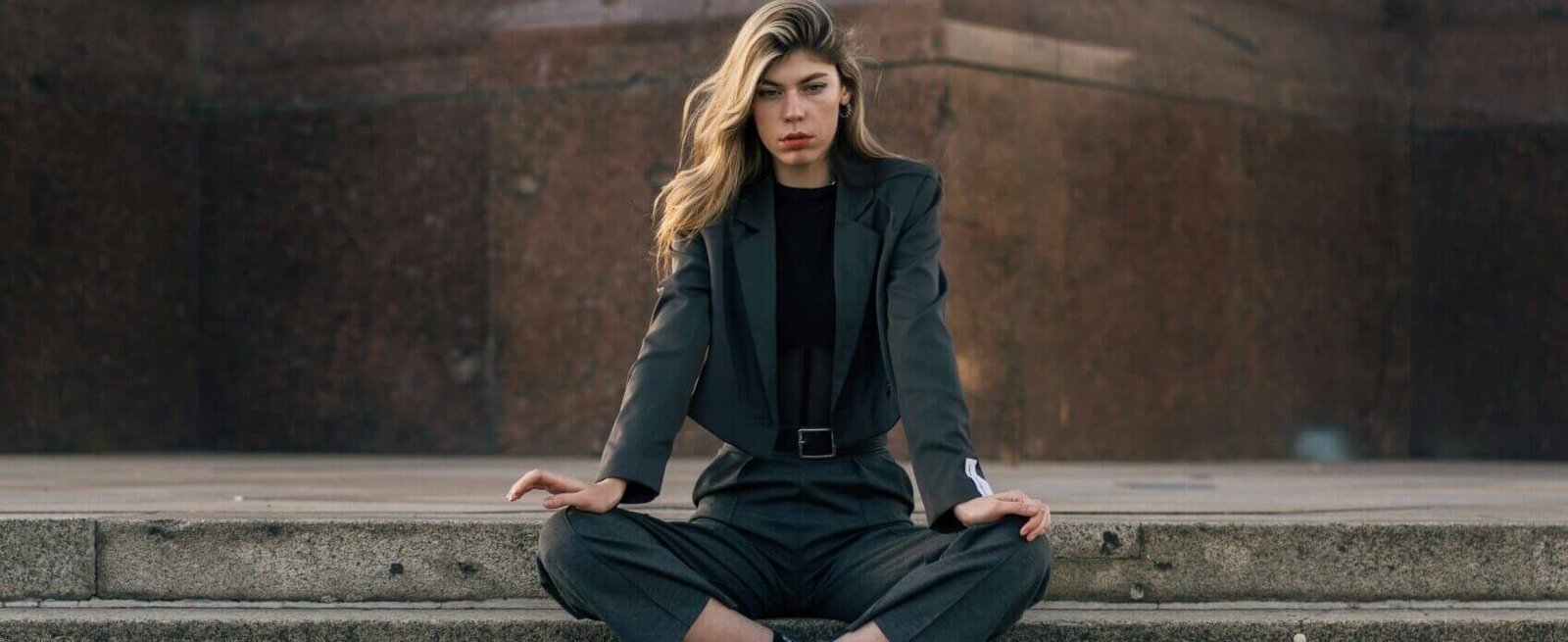You’re feeling anxious after receiving a cortisone shot, and you’re curious to know just how long this feeling will persist. While the duration of anxiety can vary from person to person, rest assured that it is a common side effect that typically subsides within a certain timeframe. In this article “How Long Does Anxiety Last After Cortisone Shot” we’ll explore the topic of anxiety after cortisone shots and provide you with insights into how long you can expect this unsettling feeling to last. So, let’s delve into the world of cortisone injections and discover how long anxiety may linger after receiving one.
What is a Cortisone Shot?
A cortisone shot, also known as a corticosteroid injection, is a medical procedure wherein a healthcare professional injects a corticosteroid medication directly into a specific area of the body. Cortisone shots are typically utilized to reduce inflammation and alleviate pain in various parts of the body, such as joints, tendons, and muscles. The medication injected is a synthetic version of cortisol, a hormone naturally produced by the adrenal glands, which helps regulate inflammation and immune responses in the body.
Definition of cortisone shot
A cortisone shot is a medical procedure wherein a corticosteroid medication is injected directly into a specific area of the body to alleviate pain and reduce inflammation.
Common uses of cortisone shots
Cortisone shots are commonly used to treat a wide range of conditions, including arthritis, bursitis, tendonitis, carpal tunnel syndrome, plantar fasciitis, and allergic reactions. They are particularly effective in reducing inflammation caused by these conditions and can provide significant relief from pain and discomfort.
Possible Side Effects of Cortisone Shots
Like any medical procedure, cortisone shots can have potential side effects. However, it is important to note that the occurrence of side effects varies from person to person. While many individuals may experience minimal to no side effects, others may encounter certain complications.
Overview of potential side effects
Common side effects of cortisone shots include temporary pain at the injection site, thinning of the skin, discoloration, and an increase in blood sugar levels. In rare cases, more severe side effects such as infection, joint damage, nerve damage, or allergic reactions may occur. It is essential to discuss these possible side effects with your healthcare provider before receiving a cortisone shot to ensure you are well-informed and prepared.
Anxiety as a side effect
One potential side effect of cortisone shots that some individuals may experience is anxiety. Anxiety can manifest as feelings of unease, nervousness, or fear, and it may be mild or more intense depending on the individual. While not everyone may experience anxiety as a side effect, it is essential to be aware of the possibility and understand how to manage it effectively.
Anxiety and Cortisone Shots
It is crucial to understand the relationship between cortisone shots and anxiety to address any potential concerns or symptoms that may arise. Cortisone, the medication injected during the procedure, is a synthetic version of cortisol, a hormone that plays a role in regulating stress and anxiety. While the direct correlation between cortisone shots and anxiety is not fully understood, it is believed that the hormonal changes triggered by cortisone injections may contribute to the development or intensification of anxiety symptoms.
Understanding the relationship between cortisone shots and anxiety
Cortisone shots can affect the body’s hormonal balance, as well as the functioning of the adrenal glands. These hormonal fluctuations may lead to changes in mood and anxiety levels. It is important to note that anxiety as a side effect of cortisone shots is generally temporary and tends to dissipate as the corticosteroid medication is metabolized and excreted from the body.
Importance of discussing anxiety with healthcare provider
If you have a history of anxiety or are prone to experiencing anxiety, it is crucial to discuss this with your healthcare provider before receiving a cortisone shot. By openly communicating your concerns, your healthcare provider can offer insights, reassurance, and potentially adjust the treatment plan to minimize any anxiety-related symptoms or address them promptly if they arise.
Duration of Anxiety After Cortisone Shot
The duration of anxiety experienced after a cortisone shot can vary significantly among individuals. Some individuals may not experience any anxiety at all, while others may notice anxiety symptoms for a brief period following the injection. Understanding the factors that influence the duration of anxiety can help manage expectations and implement appropriate coping strategies.
Individual differences in anxiety duration
Each person’s response to cortisone shots and the subsequent anxiety can be influenced by various factors, including their overall health, preexisting anxiety levels, the specific condition being treated, the dosage and frequency of the injections, and individual body chemistry. Due to these variables, it is challenging to predict precisely how long anxiety symptoms may last.
Factors influencing the duration of anxiety
Aside from individual differences, other factors that may influence the duration of anxiety after a cortisone shot include the injection site, the amount of cortisone administered, and the specific condition being treated. In general, anxiety related to cortisone shots is expected to be short-term and resolve as the medication is eliminated from the body.

Immediate Effects of Cortisone Shots
Anxiety levels can be affected immediately after receiving a cortisone shot due to the physical and emotional stress associated with medical procedures. It is essential to recognize and understand these initial impacts to adequately prepare for potential anxiety symptoms and manage them effectively.
Initial impact on anxiety levels
For some individuals, the mere anticipation of a medical procedure, such as receiving a cortisone shot, can cause temporary nervousness or anxiety. This initial impact on anxiety levels is often attributed to the fear of needles, discomfort, or potential side effects. However, it is crucial to remember that these feelings are usually short-lived and tend to subside once the procedure begins.
Temporary exacerbation of anxiety symptoms
In rare cases, individuals may experience a temporary exacerbation of preexisting anxiety symptoms immediately after receiving a cortisone shot. This can be attributed to the stress of the procedure, the release of hormones in response to pain or discomfort, or heightened emotional sensitivity. It is important to inform your healthcare provider if you notice any significant worsening or prolonged anxiety symptoms following a cortisone shot.
Short-Term Anxiety After Cortisone Shot
Short-term anxiety refers to anxiety symptoms that persist for a relatively brief period after receiving a cortisone shot. While the duration can vary among individuals, understanding typical timelines can help manage and cope with short-term anxiety effectively.
Typical duration of short-term anxiety
Short-term anxiety after receiving a cortisone shot is commonly expected to last for a few days to a week. During this time, you may experience increased restlessness, irritability, or feelings of worry or unease. However, it is important to remember that these symptoms are temporary and should gradually fade as the cortisone medication is metabolized and eliminated from your body.
Managing and coping with short-term anxiety
To manage and cope with short-term anxiety after receiving a cortisone shot, it can be helpful to engage in stress-reducing activities such as deep breathing exercises, meditation, or engaging in hobbies and activities that promote relaxation. It is also important to maintain open communication with your healthcare provider and inform them of any concerning or persistent anxiety symptoms so that appropriate support and guidance can be provided.

How Long Does Anxiety Last After Cortisone Shot
While anxiety after a cortisone shot is generally expected to be short-term, in some cases, individuals may experience prolonged anxiety symptoms that persist beyond the typical duration. Several potential causes can contribute to long-term anxiety, and seeking professional help becomes crucial for comprehensive management and support.
Potential causes of prolonged anxiety
Prolonged anxiety after a cortisone shot may be influenced by factors such as preexisting anxiety disorders, underlying medical conditions, psychological factors, or individual sensitivity to corticosteroids. In rare instances, the cortisone shot itself may not be the direct cause of the prolonged anxiety, and it is essential to work closely with a healthcare provider to determine and address the underlying causes.
Seeking professional help for long-term anxiety
If anxiety symptoms persist for an extended period or significantly impact daily functioning, it is advisable to seek professional help from a healthcare provider or mental health practitioner. They can offer appropriate assessment, support, and potential treatment options, such as therapy or medication, to manage and alleviate long-term anxiety associated with a cortisone shot.
Tips to Minimize Anxiety After a Cortisone Shot
To minimize anxiety before, during, and after a cortisone shot, there are several preventive measures, coping strategies, and management techniques that can be implemented. By employing these tips, you can enhance your overall experience and reduce anxiety-related symptoms.
Preventive measures before the shot
Before receiving a cortisone shot, it is essential to communicate any concerns or anxieties with your healthcare provider. They can provide information, answer questions, and offer reassurance. Additionally, engaging in relaxation techniques such as deep breathing exercises or mindfulness practices leading up to the procedure can help alleviate anxiety and promote a sense of calm.
Managing anxiety during the shot
During the cortisone shot itself, it can be helpful to focus on your breathing, practice positive self-talk, or request distractions, such as listening to music or engaging in conversation with the healthcare provider. By redirecting your attention and employing relaxation techniques, you can help reduce anxiety levels during the procedure.
Post-shot anxiety management strategies
After receiving a cortisone shot, it is important to continue implementing stress-reducing techniques, such as engaging in physical activity, practicing relaxation exercises, and maintaining open communication with your healthcare provider. Additionally, sharing your experience with friends and family who can provide understanding and support can further contribute to managing anxiety during the post-shot period.
Coping Mechanisms for Anxiety After Cortisone Shot
While anxiety after a cortisone shot may be temporary, employing coping mechanisms can help alleviate symptoms and promote overall well-being. These strategies can be utilized during the short-term or long-term recovery period to manage anxiety more effectively.
Relaxation techniques
Engaging in relaxation techniques such as deep breathing exercises, progressive muscle relaxation, or guided imagery can effectively calm anxious thoughts and promote a sense of relaxation. These techniques can be performed in the comfort of your own home and are easily accessible tools for managing anxiety.
Exercise and physical activity
Regular physical exercise has been shown to have a significant positive impact on mental health and anxiety reduction. Engaging in activities such as walking, yoga, or swimming releases endorphins, which are natural mood-boosting chemicals in the brain. Incorporating regular exercise into your routine can be an effective way to alleviate anxiety symptoms associated with a cortisone shot.
Support from friends and family
Having a strong support system consisting of friends and family can make a significant difference in managing anxiety. Sharing your feelings and concerns with loved ones who can offer understanding, encouragement, and emotional support can help ease anxiety and provide a sense of comfort during the recovery period.
Therapeutic approaches
For individuals who experience prolonged or severe anxiety after a cortisone shot, seeking professional help from a mental health practitioner may be beneficial. Therapeutic approaches, such as cognitive-behavioral therapy (CBT) or mindfulness-based therapy, can provide tools and strategies to manage anxiety effectively. These therapies aim to identify and challenge negative thought patterns and develop helpful coping mechanisms.
Conclusion How Long Does Anxiety Last After Cortisone Shot
In conclusion, anxiety after receiving a cortisone shot can vary in duration and intensity among individuals. While the occurrence of anxiety as a side effect is relatively low, it is important to be aware of the possibility and understand how to manage it effectively. By understanding the relationship between cortisone shots and anxiety, discussing any concerns with healthcare providers, and implementing appropriate coping strategies, you can navigate any potential anxiety symptoms and ensure a smoother recovery process. As with any medical procedure, maintaining open communication with your healthcare provider is essential for personalized guidance and support throughout your journey.
Frequently Asked Questions:
1. Can cortisone make you anxious? Yes, cortisone injections may have side effects, including anxiety, for some individuals.
2. How long does it take for cortisone side effects to go away? The duration varies, but side effects usually resolve within a few days to weeks.
3. Can cortisone shots affect your mental health? Cortisone shots can impact mental health, potentially causing mood changes and anxiety.
4. How long does cortisone shot insomnia last? Insomnia after a cortisone shot is usually temporary, lasting a few days.
5. Does steroid anxiety go away? Yes, steroid-induced anxiety often resolves as the steroids leave the system.
6. How long does it take for steroid anxiety to go away? Steroid-induced anxiety typically diminishes within days to weeks after the treatment.
7. Why do I feel weird after cortisone shot? Feeling unusual after a cortisone shot can be a side effect; consult your healthcare provider if concerns persist.
8. How long does it take for a cortisone injection to settle down? The time for symptoms to settle varies, but most people experience relief within a week.
9. How do you get rid of cortisone side effects? Hydrating, maintaining a healthy diet, and consulting your healthcare provider can help alleviate cortisone side effects.
10. Can steroid shots cause panic attacks? Steroid shots might contribute to anxiety, and in rare cases, panic attacks; consult your healthcare provider if you experience such reactions.
11. How do you treat steroid-induced anxiety? Managing anxiety with relaxation techniques, adequate sleep, and consulting a mental health professional can be beneficial.
12. What are the psychological side effects of cortisone? Psychological side effects may include mood swings, anxiety, and insomnia.
13. Is it normal to not sleep after cortisone injection? Temporary sleep disturbances are possible after a cortisone injection; consult your healthcare provider if issues persist.
14. Can cortisone shots keep you awake? Cortisone shots may affect sleep temporarily; establishing a bedtime routine and addressing anxiety can help.
15. Why does cortisone keep me awake? Cortisone’s impact on the body’s natural cortisol production can disrupt sleep patterns for some individuals.
16. How long does it take to feel normal after steroids? Feeling normal after steroids varies, but most people resume their usual state within a few days to weeks.
17. Do corticosteroids increase stress? Corticosteroids can contribute to stress, particularly in higher doses or with prolonged use.
18. Do steroids cause mental problems? Steroids may influence mood and mental health, and it’s essential to monitor for any mental health changes.
19. Why do I feel so bad after steroids? Individual responses to steroids vary; consult your healthcare provider to address specific concerns.
20. How long does it take for cortisol levels to return to normal after steroids? Cortisol levels typically normalize within weeks to months after discontinuing steroids.
21. What foods lower anxiety? Certain foods, like those rich in omega-3 fatty acids and antioxidants, may have anxiety-reducing properties.
22. Do cortisone shots affect nerves? Cortisone shots can impact nerves, potentially causing temporary discomfort or numbness; consult your healthcare provider for personalized advice.
23. Do steroid shots mess with your emotions? Steroid shots may influence emotions, and individuals may experience mood changes; consult your healthcare provider if emotional effects are a concern.
24. Does depression from steroids go away? Steroid-induced depression often resolves as the steroids leave the system, but it’s crucial to seek professional guidance.
25. Can you take Xanax with steroids? Consult your healthcare provider before combining Xanax or any other medications with steroids to ensure safe use.
26. What drinks calm anxiety? Herbal teas like chamomile and warm milk are known for their calming effects on anxiety.
27. What brings anxiety down fast? Deep breathing exercises, mindfulness, and engaging in calming activities can help alleviate anxiety quickly.
28. What is the number 1 way to relieve anxiety? The effectiveness of anxiety relief methods varies, but finding healthy coping mechanisms, seeking support, and practicing self-care are often key components.
More on Cortizone Shot here.
